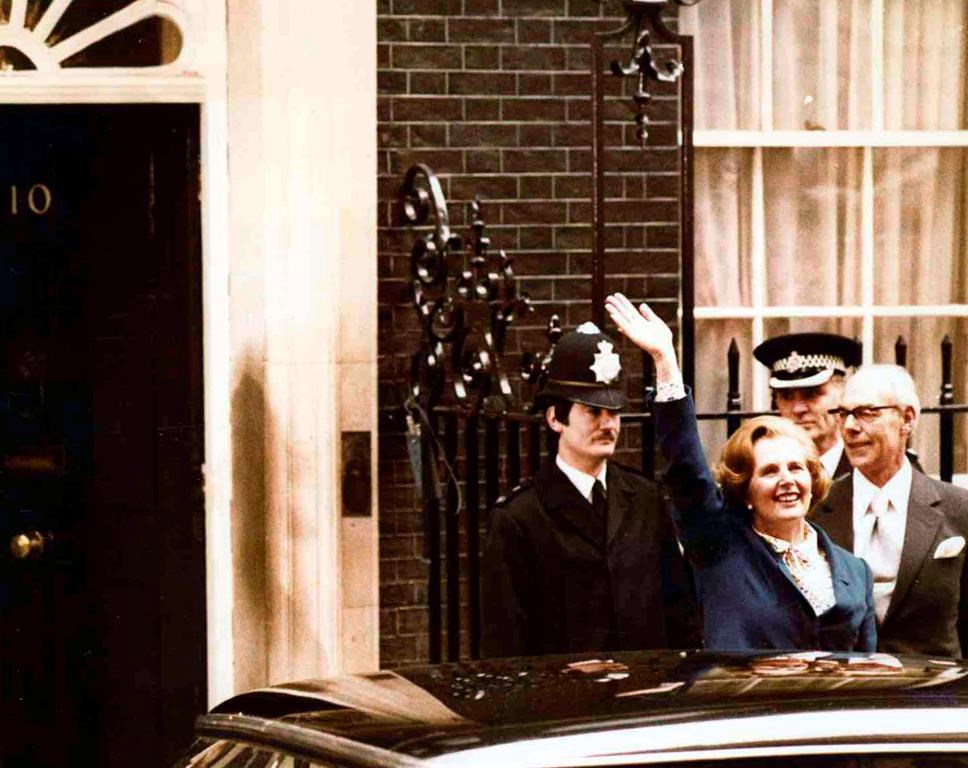UK’s landmark postwar elections: When Thatcher became the first female prime minister in 1979
Advertisement
Read this article for free:
or
Already have an account? Log in here »
To continue reading, please subscribe:
Monthly Digital Subscription
$0 for the first 4 weeks*
- Enjoy unlimited reading on winnipegfreepress.com
- Read the E-Edition, our digital replica newspaper
- Access News Break, our award-winning app
- Play interactive puzzles
*No charge for 4 weeks then price increases to the regular rate of $19.00 plus GST every four weeks. Offer available to new and qualified returning subscribers only. Cancel any time.
Monthly Digital Subscription
$4.75/week*
- Enjoy unlimited reading on winnipegfreepress.com
- Read the E-Edition, our digital replica newspaper
- Access News Break, our award-winning app
- Play interactive puzzles
*Billed as $19 plus GST every four weeks. Cancel any time.
To continue reading, please subscribe:
Add Free Press access to your Brandon Sun subscription for only an additional
$1 for the first 4 weeks*
*Your next subscription payment will increase by $1.00 and you will be charged $16.99 plus GST for four weeks. After four weeks, your payment will increase to $23.99 plus GST every four weeks.
Read unlimited articles for free today:
or
Already have an account? Log in here »
Hey there, time traveller!
This article was published 30/06/2024 (506 days ago), so information in it may no longer be current.
LONDON (AP) — Britain’s upcoming general election is widely expected to lead to a change of government for the first time in 14 years. Many analysts believe it will be one of the country’s most consequential elections since the end of World War II.
Ahead of the July 4 vote, The Associated Press takes a look back at other landmark U.K. elections since the war.
——

Britain’s general election in 1979 is without doubt the most significant since 1945, with Margaret Thatcher becoming the country’s first female prime minister on a radical Conservative economic agenda.
At its heart, Thatcherism represented a total rethink over the role of the state.
Since Labour’s big victory in 1945, a so-called postwar consensus on the economy existed between the two main parties, Labour and the Conservatives. Despite the changes in power, their economic approaches aligned. Governments targeted full employment and would intervene in the economy to pursue that goal through tax and spending policies.
That consensus was getting increasingly frayed through the 1970s as Britain went into an economic tailspin, with inflation running at postwar highs and trade unions increasingly militant in pursuit of their pay claims.
The May 1979 election took place in the wake of the so-called Winter of Discontent, a huge wave of strikes across industries and public services. The mood within the Labour government, led by Jim Callaghan, was downbeat.
Thatcher, who sought to play up to her image as the Iron Lady, said things couldn’t carry on as they were. She won a sizeable majority in the election and stayed in power for more than 11 years, a period which saw income taxes slashed, particularly on the wealthy, and the privatization of many industries such as energy and telecommunications.
On the international stage, Thatcher enjoyed a close relationship with her political soulmate, U.S. President Ronald Reagan. Both talked tough on the Soviet Union. She also grew increasingly vocal in her opposition to what was then called the European Economic Community, now the European Union, which ultimately led to her downfall.
Thatcher’s premiership, which lasted until she was effectively ousted by members of her own party in 1990, is one of the most controversial in postwar Britain.
Her admirers include current Prime Minister Rishi Sunak and many other senior Conservatives who cite Thatcher as their political inspiration. But to her opponents, Thatcher was a divisive figure whose free-market economic liberalism wrecked local communities and whose growing euroskepticism fueled opposition to European integration that ultimately led to the Brexit vote in 2016.


